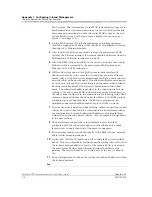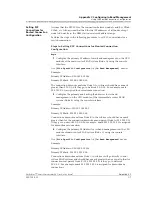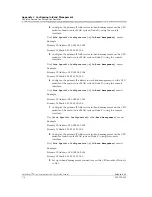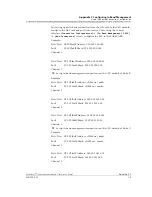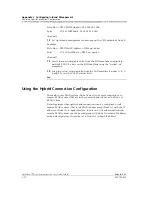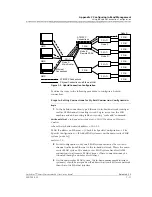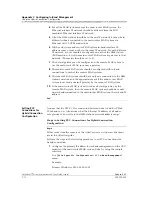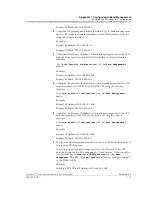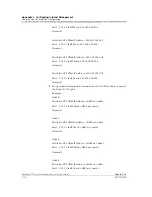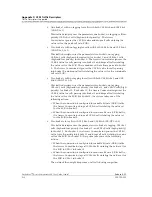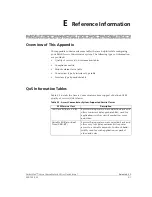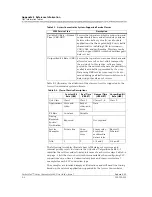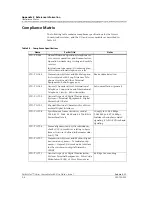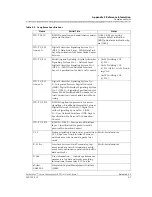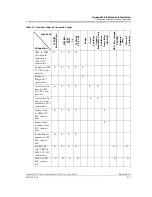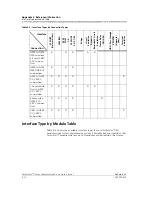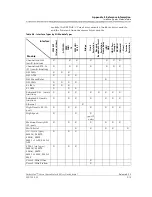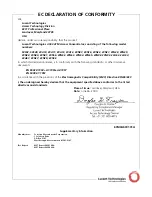
Appendix E Reference Information
QoS Information Tables
E-2
255-700-025
PacketStar
™
Access Concentrator 60 User Guide
, Issue 1
Release 6.3.0
Table E-2 illustrates the attributes of the classes of service supported by the
Access Concentrator system software.
The following two tables illustrate how ATM classes of service map to
internal priority levels to structure the
AQueMan
™
algorithm. Table E-3
identifies the cell-loss and cell-delay tolerance of each service class. Table E-4
on page -3 lists the class-of-service choices available when configuring PVC
connections on an Access Concentrator system and shows service level
examples for each PVC connection type.
The examples are intended simply as illustrations and will need fine tuning
based on the network applications supported by the Access Concentrator
Variable Bit Rate—Nonreal
Time (VBR-NRT)
Service that operates on both a connection and
connectionless basis and allows delay variance
between the delivery of cells; used for data
applications that have potentially bursty traffic
characteristics, including LAN interconnect,
CAD/CAM, and multimedia. This class can be
used to support SMDS (switched multimegabit
data service).
Unspecified Bit Rate (UBR) Service that operates on a connection basis and
allows for raw cell or best-effort transport by
the network. In this service, cells are trans-
ported by the network whenever bandwidth is
available and traffic is presented by the user.
Data using UBR service is more apt to be dis-
carded during peak traffic times in deference to
data using other classes of service.
Table E-2. Class of Service Descriptions
Constant Bit
Rate (CBR)
Real Time
(VBR-RT)
Nonreal Time
(VBR-NRT)
Unspecified Bit
Rate (UBR)
QoS Class
Class 1
Class 2
Classes 3, 4
Class 5
Applications Voice and
video
Packet
video and
voice
Data
Bit Rate
Constant
Variable
Timing
Required
Source/
Destination
Required
Not required
Service
Examples
Private line
Com-
pressed
voice
Frame relay,
Switched
multimedia
data service
Raw cell,
Ethernet
AAL
1
2
3/4 and 5
3/4 and 5
Table E-1. Access Concentrator System-Supported Service Classes
ATM Service Class
Description

